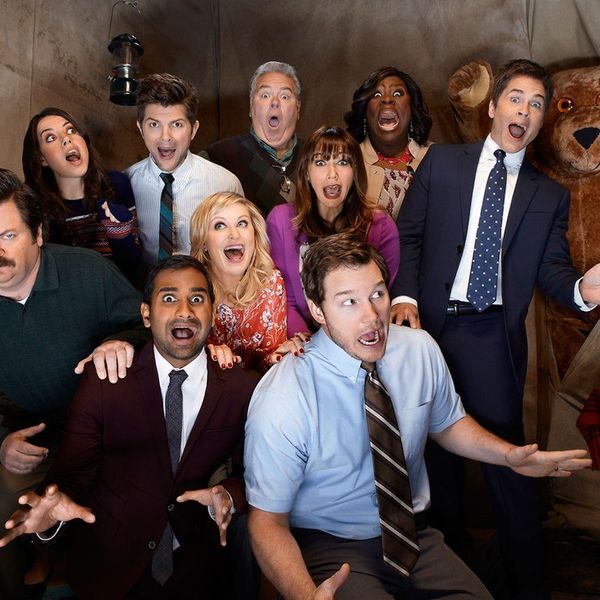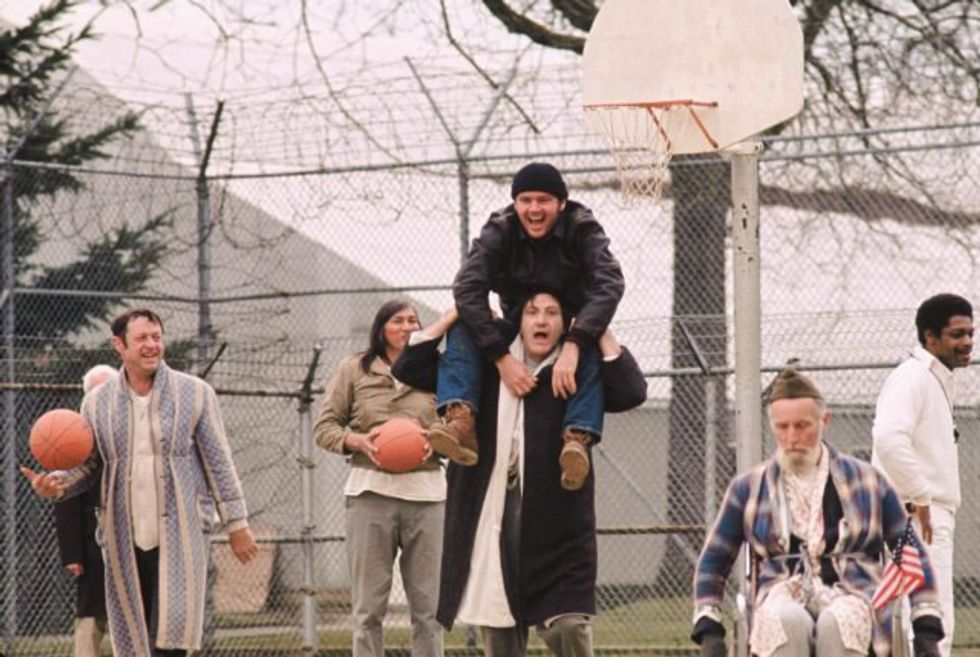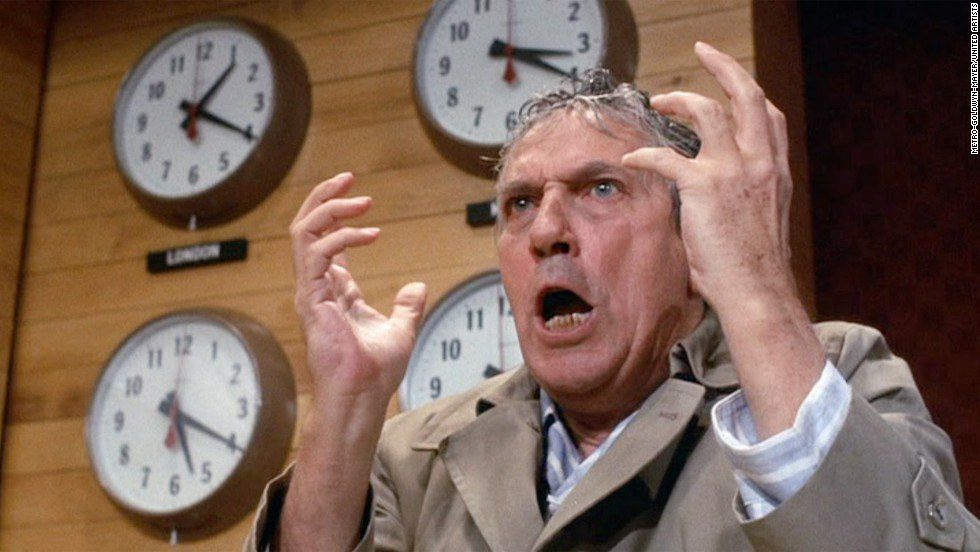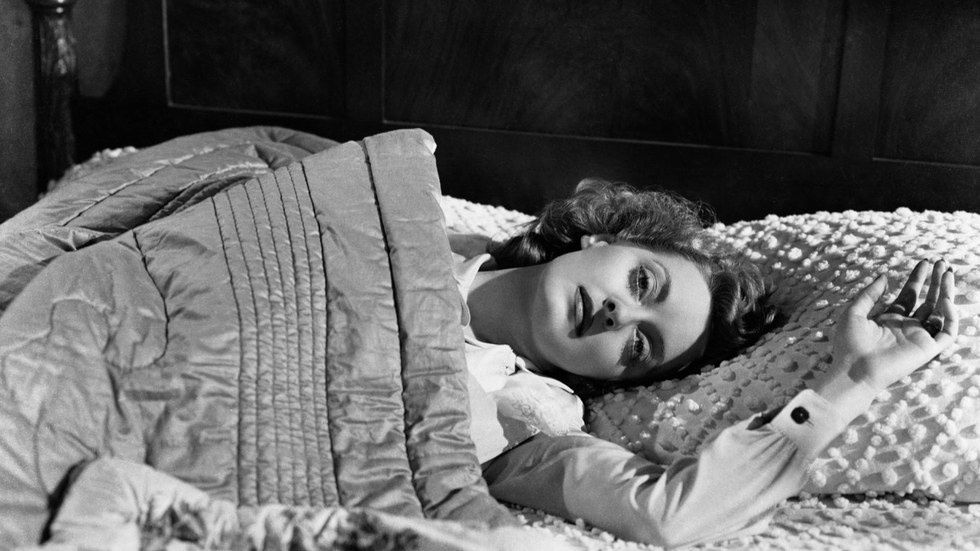I already wrote about TV, so my vast wealth of knowledge is already, for the most part, exhausted. However, as I am a man of many interests, I also love movies. For over a century, they have had a unique way of uniting us. From sorrow to triumph and everything in between, nothing can evoke emotion quite like a good movie, and I am often astounded by the sheer number of films that can stir so many feelings inside of us all, not to mention their diminishing recognition with each passing generation.
Which is why one of my biggest pet peeves in life is people with a clichéd favorite movie. You know who you are, and it's not too late to change it. If your favorite film is The Shawshank Redemption, The Green Mile, or Titanic, this list is for you.
11.
One Flew Over the Cuckoo's Nest (1975) - Jack Nicholson's only memorable film (unless you count Batman, The Shining, Five Easy Pieces, Terms of Endearment, Hoffa, etc, etc, ad nauseam), One Flew Over the Cuckoo's Nest follows Randal MacMurphy through a mental hospital in the wake of his falsely pleading insanity in court. MacMurphy, as the only sane patient, leads the others to a newfound sense of freedom and, more importantly, humanity, as Nurse Ratched, the main antagonist of the film, does everything in her power to dehumanize the patients and break their will to live.
Lesson Learned: The human spirit is indomitable, even in the face of electroshock therapy. Nothing can stop you (except maybe a lobotomy)!
10.
A Patch of Blue (1965) - Selina D'Arcey is a blind girl living in a run-down apartment with her abusive mother Rose Ann (Shelley Winters - one of the few movies where she doesn't die) and her alcoholic grandfather. While stringing beads in the park one afternoon, she meets Gordon (Sidney Poitier), an African-American man, who slowly begins to teach her all about the world around her. It's a beautiful story about humanity and selflessness, and seeing the most mundane of things done by Selina with a childlike fascination is surprisinglyinspiring.
Lesson Learned: The unimaginable power of even the smallest acts of kindness, and that to be prejudiced is to be truly blind.
9.
Edward Scissorhands (1990) - Continuing with this theme of how awful society can be, Edward Scissorhands is a Burton-Depp masterpiece (before we all got sick of them) that perfectly encapsulates both the petty, parochial attitude of the suburbs after they are exposed to the titular character, and the tragic glamour of being an outcast. It's a heartbreaking movie with stunningly beautiful cinematography and a lot of schmaltzy Tom Jones music thrown in.
Lesson Learned: Society (especially the suburbs) might hate you if you're different, but who needs their love? You're a star.
8.
Sunset Boulevard (1950) - Generally regarded as one of the greatest movies ever made, this surprisingly modern film tackles the loss of prestige in Hollywood, a town with an industry supported by stars as replaceable as they are glamorous. Forgotten movie queen Norma Desmond (played by forgotten movie queen Gloria Swanson) makes a vow to return to "pictures" with tragic consequences. The film shows in graphic, vivid detail what clinging to memories and a youth-and-beauty obsessed society can do to the human psyche. Not to mention the fact that Gloria can ACT, y'all.
Lesson Learned: Don't dwell in the past. Move on, push forward, thrive.
7.
The African Queen (1951) - I guarantee that this is the most inspiring story of two middle-aged people falling in love that you'll ever see. Missionary Rose Sayer and alcoholic steamboat captain Charlie Allnut team up to sail down the Ulanga River and sink a German gunboat at the dawn of WWI. I shouldn't even have to sell this one because Bogart got the Oscar for it and Katherine "Four Oscars" Hepburn (Meryl before Meryl was even born) is in it, but it's an amazing action film and a genuine, heartfelt romance that can appeal to anybody.
Lesson Learned: Let nothing stop you from your happiness, and if you think that's a cliché, you should see these two fifty year olds take on the German Army.
6.
The Heiress (1949) - Catherine Sloper (Olivia de Havilland, who recently turned 99 - lemme hear you say heeeey Ms. de Havilland) is a plain girl from a wealthy family. When she falls in love with a man named Morris (Montgomery Clift), her father, fearing that Morris is more interested in the dowry than his daughter, threatens to disinherit her if she marries him. Good ol' Cathy, naive as she is loaded, tells all of this to Morris thinking that he isn't in it for her mansion, and is then surprisingly surprised when he doesn't show up the next day. Years later, desperate and destitute, Morris returns, begging to marry her. Her reaction is one of the iciest, most amazing examples of acting ever filmed. It's a story of pain, loss, and is still beyond poignant after all these decades.
Lesson Learned: Naivité can be dangerous. Snap out of it and grow up before Monty Clift breaks your heart. That, and it's better to be rich and single than broke and blissfully wed.
5.
Side note: watch for not only Faye Dunaway, but for William Holden (also in Sunset Boulevard) and his amazing monologue where he refers to Diana as "television incarnate ... Indifferent to suffering; insensitive to joy. All of life is reduced to the common rubble of banality."
Lesson Learned: People will step on your face to get to the top and won't give a damn if they leave you along the wayside. You gotta be tough to make it in this world, kid.
4.
Peyton Place (1957) - I cannot recommend thisenough for anybody who disliked their town growing up. Everything from murder to incest, suicide to rape rocks the idyllic New England town in this mesmerizing masterpiece. I watched this for the first time in high school, and it really put things into perspective of just how bad small-town America really can be, giving me a newfound appreciation for my own.
Lesson Learned: Appreciate what you have and where you are in life because it could always be worse. You could live in Peyton Place. And something about judge not lest ye be judged.
3.
Dark Victory (1939) - If you take away one name from this article, let it be this one: Bette Davis. One of the greatest actresses of all time during the greatest year of filmmaking to date makes even this, an hour and a half of a woman dying, an amazing film. Bette plays Judith Traherne, an heiress who smokes and drinks and lives a life free of responsibility until she discovers that she has a terminal illness (and we're supposed to sympathize with her? Poor little rich girl). Davis' transformation from the Paris Hilton of the 30s to a caring, mature woman is heartwarming.
Lesson Learned: Family and friends, more so than champagne and cars, make a life, no matter how tragically short, worth living.
2.
(Funbabysitting tip: if the kiddos ask for a movie, pop this one into the VCR to let them know that life isn't one long Disney production.)
Lesson Learned: If they're attractive, intelligent, stylish, and mysterious, they're going to murder your family. Never marry. Live like a nun. Die a virgin.
1.
Lesson Learned: "Life is a banquet, and most poor suckers are starving to death!" - Mame Dennis Burnside
Not all of these movies have a definitive, happy ending. Not all of them are easy to watch. Not all of them are even universally beloved. But these movies are so powerful that I have finished watching them a different person. I miraculously stumbled upon some of them at a time when I desperately needed the lessons that they offered, others I discovered by word of mouth and came to love. Some of these films are still held as standards of cinema, others are woefully unappreciated. Yet, in spite of notoriety (or lack thereof), all of them possess an individual message that will resonate with anybody. Watch one, watch them all, maybe you'll love one as much as I do, and then the next time you have to play an icebreaker game in class during syllabus week, you can reply with something a little less hackneyed than Forrest Gump.































